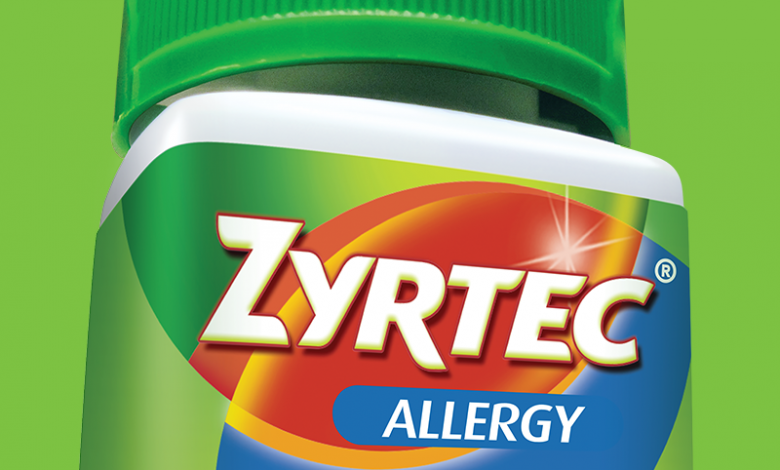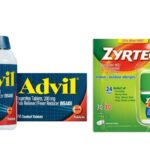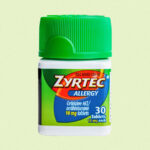Can I Take 2 Zyrtec Pills In One Day?

When one seeks medical attention, the first and foremost task handed to the physician is to assess the patient’s medical history and then prescribe an appropriate personalized medical regimen. Be it infectious diseases, chronic conditions, or metabolic disorders, prescription of medication is only the first step of proceedings. It is equally upon the patient, as much as it is upon the doctor and healthcare professionals examining him, to stick to his or her prescribed routine and get a follow-up check done on a regular basis.
The dose is the amount of drug taken at any one time. This can be expressed as the weight of the drug (e.g. 250 mg), the volume of drug solution (e.g. 10 mL, 2 drops), the number of dosage forms (e.g. 1 capsule, 1 suppository), or some other quantity (e.g. 2 puffs). The dosage regimen is the frequency at which the drug doses are given. Examples include 2.5 mL twice a day, one tablet three times a day, and one injection every four weeks.
The total daily dose is calculated from the dose and the number of times per day the dose is taken while the optimal dosage is the dosage that gives the desired effect with minimum side effects. There are many factors taken into consideration when deciding the dose of a drug – including the age of the patient, weight, sex, ethnicity, liver and kidney function, and whether the patient smokes. Other medicines may also affect the drug dose. Adherence and compliance are pivotal in ensuring an improved health outcome for the patient especially if he is suffering from a chronic condition and needs prolonged medical attention.
What is Zyrtec?
Zyrtec is a brand of cetirizine, a medication used to temporarily relieve the symptoms of hay fever (allergy to pollen, dust, or other substances in the air) and allergy to other substances (such as dust mites, animal dander, cockroaches, and molds). If you have year-round allergies or seasonal allergies like hay fever, your doctor may recommend cetirizine. Zyrtec may help relieve allergy symptoms, but it doesn’t prevent them.
When you come in contact with substances that you may be allergic to (allergens), your body produces a chemical called histamine. Histamine causes most of the symptoms related to allergic reactions.
Zyrtec is an antihistamine. It blocks the effects of histamine.
Zyrtec helps relieve mild to moderate allergy symptoms, such as:
- sneezing
- runny nose
- itchy or watery eyes
- itchy throat or nose
These reactions can happen after you touch or inhale allergens such as plant pollen, mold, or pet dander. Allergies usually affect your nose, sinuses, throat, and other areas of your upper respiratory system.
Zyrtec also helps relieve hives. Hives are itchy, with raised rashes on the skin. They often occur with food or medication allergies.
How should Zyrtec be used?
Zyrtec comes as a tablet, a chewable tablet, an extended-release tablet, and a syrup (liquid) to take by mouth. It is usually taken once a day with or without food. Take Zyrtec at around the same time every day. Follow the directions on your package label carefully, and ask your doctor or pharmacist to explain any part you do not understand. Take cetirizine exactly as directed. Do not take more or less of it or take it more often than directed on the package label or as recommended by your doctor.
Adults and children 6 years and older: The typical dose of Zyrtec is 5 mg to 10 mg by mouth once daily, depending on how severe your allergy symptoms are. You can take at most 10 mg in 24 hours.
Adults 65 years and older: The typical dose of Zyrtec is 5 mg by mouth once daily. You can take at most 5 mg in 24 hours unless a healthcare provider has recommended otherwise.
Children 2 to 5 years of age: The typical dose of Zyrtec is 2.5 mg by mouth once daily. If needed, you can take at most 5 mg in 24 hours, given as 2.5 mg by mouth every 12 hours.
Children under 2 years of age: Ask your provider to see if this medication is appropriate.
Do not use Zyrtec to treat hives that are bruised or blistered, that are an unusual color, or that do not itch. Call your doctor if you have these types of hives.
Stop taking Zyrtec and call your doctor if your hives do not improve during the first 3 days of your treatment or if your hives last longer than 6 weeks. If you do not know the cause of your hives, call your doctor.
If you are taking Zyrtec to treat hives, and you develop any of the following symptoms, get emergency medical help right away: difficulty swallowing, speaking, or breathing; swelling in and around the mouth or swelling of the tongue; wheezing; drooling; dizziness; or loss of consciousness. These may be symptoms of a life-threatening allergic reaction called anaphylaxis. If your doctor suspects that you may experience anaphylaxis with your hives, he may prescribe an epinephrine injector (EpiPen). Do not use Zyrtec in place of the epinephrine injector.
Can I take 2 Zyrtec in one day?
No, the recommended maximum dose of Zyrtec is 10 mg daily, taking 2 Zyrtec 10mg tablets in one-day can result in an overdose. Symptoms of Zyrtec overdose may include extreme drowsiness, vision problems, agitation, feeling restless and then drowsy or tired, fast heartbeats, stomach pain, nausea, vomiting, trouble walking, or trouble swallowing or speaking.
In case of overdose, call the poison control helpline at 1-800-222-1222. Information is also available online at https://www.poisonhelp.org/help. If the victim has collapsed, had a seizure, has trouble breathing, or can’t be awakened, immediately call emergency services at 911.





